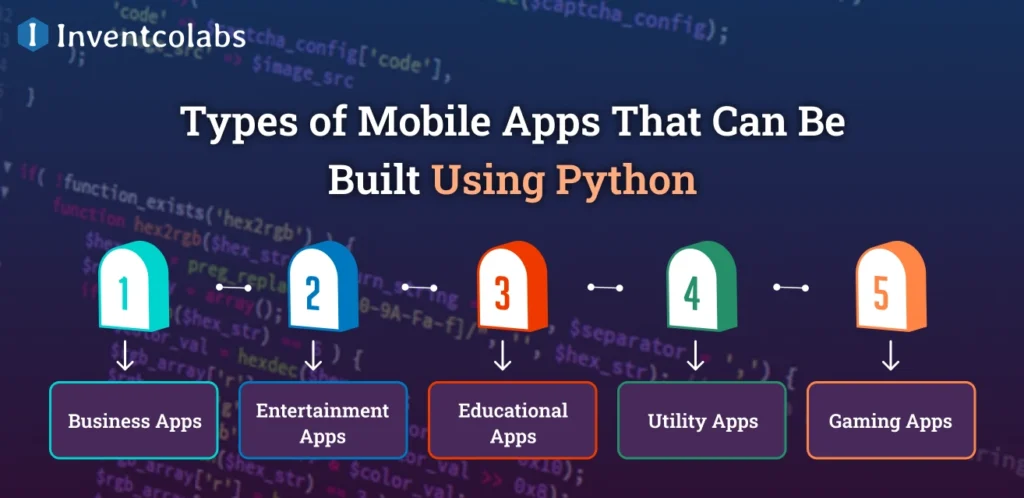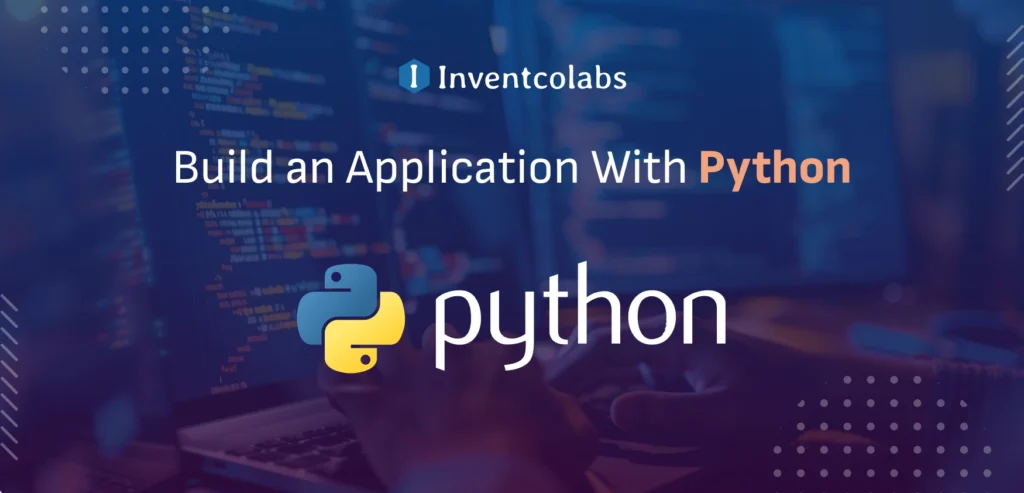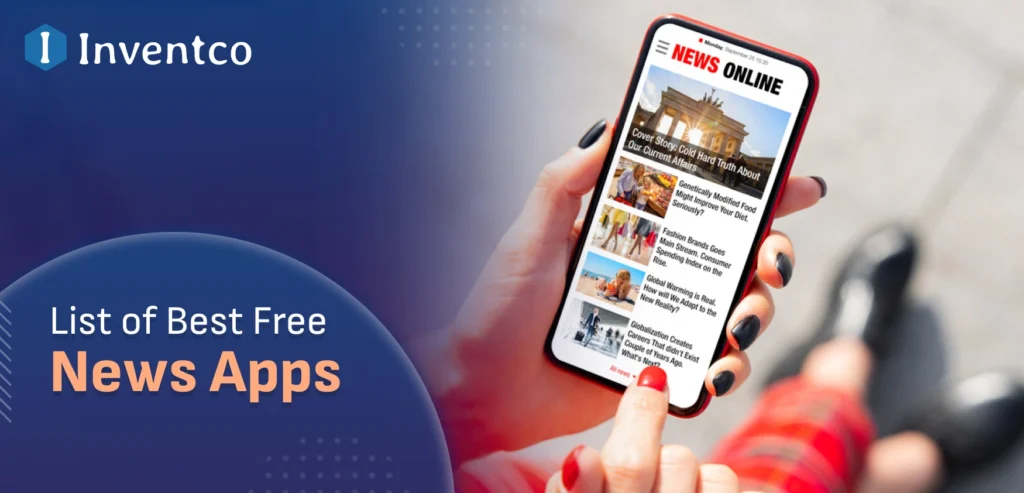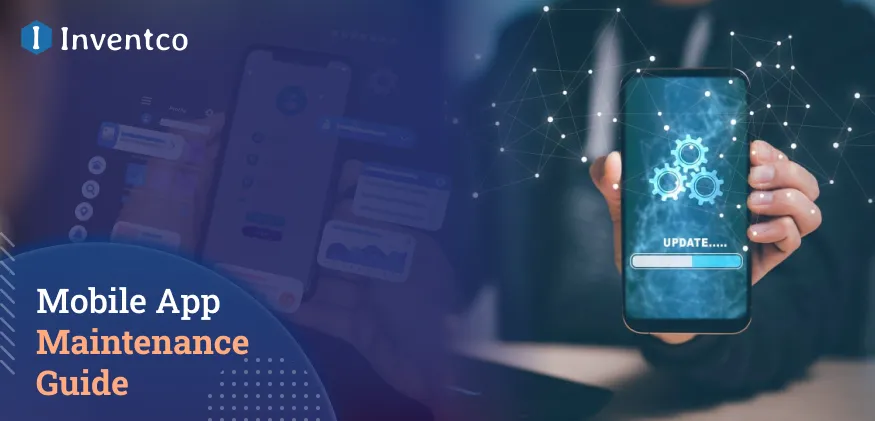Python is a versatile programming language widely used in multiple domains, such as web, desktop, and mobile app development. Due to its simplicity and extensive library support, it is a favorite for developers worldwide. Python app development is often associated only with data science and web development, but creating robust mobile applications and tools written with Python is also a thing.
No matter whether you are intending to develop a Python application for Android or make a web app with Python, the language provides all the tools and flexibility to bring your idea to life.
Is Python Good for Mobile App Development?
Mobile app development with Python is not something we would usually associate with Python, but this use case is becoming more common. Python and frameworks like Kivy, BeeWare, and PyQt help developers to create cross platform mobile apps. These frameworks help in building applications in Python, which will be executed on both Android and iOS, saving development costs.
Python, being simple and having a lot of libraries is ideally suited for prototyping and app iterations quickly. However, Python mobile app development may not perform as well as Swift or Kotlin native languages but it is just what you need for lighter apps. Python can also be integrated with native components and developers can add functionality to the app. The right expertise, or working with a Python app development company makes Python a cost effective solution for mobile and cross platform applications.
What Are the Pros and Cons of Python?

Pros of Python
1. Versatility
It is highly flexible and supports a lot of domains right from web development, and data analysis to AI. Python can be used for various purposes: whether creating a desktop solution or a Python web app development project, the language will suit all the needs.
2. Ease of Learning
Python is the perfect language for beginners due to its clean and simple syntax. Python is widely used in coding boot camps and schools because it’s an excellent starting point for learning program language.
3. Extensive Libraries
There are numerous libraries and frameworks in Python, such as Django, Flask, and Kivy where everything from creating a web app with Python to building mobile applications is possible. They speed up development and that’s why Python is efficient for large scale projects.
4. Community Support
The Python community is massive and growing fast, so you’ll be able to rely on tutorials, documentation and troubleshooting forums. It doesn’t matter if it’s the Python programming software or maybe a mobile app, you can obtain tips online quite simply.
Cons of Python
1. Performance Issues
Python is slow since it is an interpreted language in comparison with compiled languages like C++ or Java. In Python mobile apps, this can be a drawback if the processing needs to be ultra fast or we need real time interaction.
2. Mobile Development Limitations
Python in mobile app development is possible using frameworks like Kivy, but you don’t get the native experience of Swift or Kotlin for mobile platforms. Performance issues and platform specific features may create problems for developers.
3. Runtime Errors
Because of Python’s dynamic typing, runtime errors might occur during development but are difficult to catch. The downside of this is that it can become a bit of a drag when building applications in Python that need to be thoroughly debugged.
Read More: Which Is the Best Custom Mobile App Development Company?
Best Way to Learn Python Programming Language
1. Learn the Basics
Let’s start with learning Python syntax, data types and control structures. Take the help of online courses, books or tutorials. Hands-on practice can be done through a python programming app. Try to learn basic concepts like variables, loops and functions. The best way to get good at these skills is to also build small scripts. Basics are important to learn before diving into things like Python app development, etc. Study and practice every day on a regular basis.
2. Practice Regularly
If you learn Python and constantly practice it, you will learn it quickly. Begin by doing small projects like a calculator, or even a to do list app. It helps you understand software design Python concepts. Coding regularly improves problem solving abilities and makes you more confident. While you’re doing this, keep an eye on debugging, and optimizing your code.
3. Explore Frameworks
After you know the basics, start to explore python frameworks. Python web app development can be done well in Django and Flask. If you’re building mobile apps, try Kivy or BeeWare. Prebuilt components make the development simpler. Learning frameworks also help you learn databases, APIs and scalability for more advanced topics. An enormous framework knowledge is required for Python application development.
4. Build Real Projects
Learn by actually building some real world applications. Make a web app with Python, like a blog or eCommerce platform. Frameworks help you structure your projects. You can play around with Python mobile apps or desktop utilities as well. Python app development challenges are exposed first hand through actual projects.
Types of Mobile Apps That Can Be Built Using Python

1. Business Apps
There is no better tool than Python to develop business apps such as CRM and ERP systems. All these apps make operations simpler and faster, thus productivity increases. Frameworks such as Django help developers guarantee secure and scalable Python application development. Because of its flexibility, Python can be integrated into APIs and databases, which makes it popular for mobile app using Python in the business domain.
2. Entertainment Apps
To create media players and streaming apps, Python fits in perfectly with Python mobile apps. When it comes to dealing with audio and video with ease, there are libraries like PyMedia for the developers. Python has proven to be capable within multimedia software development and entertainment apps built with it have often come with seamless user experience.
3. Educational Apps
Python is often being used to develop educational apps, like language or coding educational apps. Interactive tutorials, quizzes, and code editors are all possible in a Python programming app. The simplicity and versatility of Python make it an outstanding tool for creating such apps that facilitate students and professionals to learn program language Python with ease.
4. Utility Apps
Some of the utility apps like calculators, weather apps, to-do lists, etc are created using Python. Cross platform development is supported by libraries such as Kivy. Python is especially great at building lightweight functional designs, and the apps outlined above demonstrate that. Due to its cost effectiveness, Python has seen a lot of popularity in utility apps and is an ideal choice for small businesses and startups for mobile app development.
5. Gaming Apps
A very popular framework for 2D games is PyGame for Python. It makes the process of making an interactive user experience simpler. It’s not meant for high end gaming but works fine for simple games.
Read More: Flutter Trends to Look Out for Creating Mobile Apps & Beyond
Top Apps Built Using Python
Some of the most popular applications globally have been built with Python. Here’s a detailed look at these apps:
- Instagram: The backend of Instagram is developed in Python.
- Spotify: Python is used by Spotify for data analysis and services in the backend.
- Dropbox: The Dropbox desktop app is implemented with Python for file synchronization and sharing.
- YouTube: Python is used by YouTube to control video streaming, search algorithms and server side functionality.
- Uber: Python is integrated into Uber’s core algorithms for route optimization and real time ride matching.
How to Make an App With Python?

Step 1: Define Your Requirements
Define clearly the purpose and features of the type of Python application that you would like to create. Think of your audience’s needs and preferences. Aligning the app’s functionality to user expectations could be done in this step. When you identify the requirements early, it makes software development with Python easier and you end up with a smooth workflow for developers.
Step 2: Choose the Right Framework
Choose a framework that fulfills what your app needs. For Python web app development, Django and Flask are an excellent choice and for mobile development with Python, Kivy and BeeWare are a great fit. Frameworks reduce the development time and offer ready to use features. The framework you pick is determined by whether you’re working on a web, desktop, or mobile Python app.
Step 3: Design the App
Wireframes and designs can be created using prototype tools. In this step, the software design Python process is visualized, which will allow for easy communication of ideas. Be aware of user experience and app layout. A well designed interface makes the app much more usable and guides the developer while building an app with Python for any platform.
Step 4: Develop and Test
Python frameworks are written to develop clean and modular code. Try to test as much as possible to find bugs and to ensure smooth functionality. Quality control is essential and the testing part is very important for Python app development services. Testing iteratively improves app stability and ensures that the final Python mobile app will be running with enough performance on any device.
Step 5: Deploy the App
After the development and testing, deploy the app to desired platforms such as Google Play or the App Store. This stage is all about making sure that your Python Android app gets to its targeted users. Monitoring post launch assists in understanding what did, and did not work, and how to keep apps performing well after release.
Cost to Build Python Mobile App Development
The cost of Python mobile app development varies based on factors like:
- Complexity: An e-commerce platform might cost you more than a simple Python Android app.
- Team Size: If you hire dedicated developers, the costs will differ based on their expertise.
- Development Time: Shorter timelines have a higher cost.
Popular Frameworks for Python App Development
1. Django
Python full stack web development and Python website programming are best done with Django. It provides you with tools to create secure and scalable web applications. With features like ORM, authentication and admin panel, Python app development is simplified.
2. Flask
Flask is a web framework for Python that allows you to quickly create a web app. It’s flexible, enabling developers to create custom tailored solutions. Small-to-medium python web app development projects are perfect for it and it integrates easily with extension features.
3. Kivy
Kivy is meant for mobile development with Python and offers cross platform support for both Android and iOS. Creating engaging interfaces is easier with the help of its UI toolkit. It’s used to build lightweight, responsive Python mobile apps.
4. BeeWare
BeeWare is all about creating native mobile Python apps for Android and iOS. With it, you can write once and deploy anywhere. BeeWare is considered one of the most popular choices for Python in mobile app development for the purpose of providing a smooth, platform specific user experience.
5. PyQt
PyQt is a powerful library for building a desktop app using Python and modern GUIs. It works on various platforms making it good for Python application development. It is flexible for developers to create versatile desktop solutions.
Wrapping Up
Python facilitates versatile and powerful app development. No matter if you’re looking for developing apps with Python for web, mobile or for desktop platforms, Python’s rich ecosystem and robust framework allow you to develop an app with great control and ease. With the help of a Python software development company or by learning yourself, you can make high quality apps specifically for your needs.
Read More: Why Next.JS is the Technology to Lookout in the Future?
FAQs
Q1. Can we make gaming apps using Python?
Ans. Indeed, there is Python support for creating games using libraries such as Pygame to make the game engaging and interactive.
Q2. Can I create a Python app that runs on Android?
Ans. Absolutely! Python Android app development is done with the help of frameworks such as Chaquopy and PyQt.
Q3. How do I make Python optimal for mobile app performance?
Ans. Using lightweight frameworks, optimizing code, and having tools like PyInstaller to build apps as efficiently as possible, can all improve performance.
Quick Contact Us Call us: +1-646-917-8081 Email : jiten@inventcolabs.com





